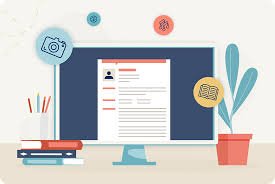
No Experience? No Problem: Your Guide to Landing Your First Job
Breaking In: Your Guide to Landing a Job with No Prior Experience
Landing your first job can feel like trying to solve an impossible riddle. Every job description seems to demand "3-5 years of experience," leaving you to wonder how you're ever supposed to get started. It's a classic catch-22: you can't get experience without a job, and you can't get a job without experience. But here's a secret: that riddle isn't impossible to solve. Companies know that their future leaders and innovators have to start somewhere. The key is to prove that you have the potential and transferable skills to succeed, even without a long list of past roles.
Your lack of experience isn't a dead end—it's an opportunity to be creative and strategic. Instead of focusing on what you don't have, this guide will show you how to leverage what you do have and build a compelling case for your first professional role.
1. Shift Your Mindset: Focus on Potential, Not the Past
The first step is to stop apologizing for your lack of experience. No one expects a fresh graduate or career-changer to have a perfect resume. Instead, frame your narrative around your potential. Think of yourself as a blank canvas, eager to be molded and shaped by a new company. Your enthusiasm, willingness to learn, and fresh perspective can be huge assets.
-
Highlight Your "Why": Why are you interested in this specific role or industry? Your passion and genuine curiosity can be more persuasive than a list of past jobs. Talk about what inspired you to pursue this path.
-
Show, Don't Just Tell: Don't say you're a "hard worker." Instead, tell a story about a time you went above and beyond on a school project, a volunteer effort, or a part-time gig. This demonstrates your work ethic in a tangible way.
2. Leverage Your Academic and Extracurricular Life
Your experience isn't limited to a formal job. Every major project, student organization, and volunteer effort is a chance to build and demonstrate valuable skills.
-
Coursework and Projects: Did you complete a research paper, a group presentation, or a final project that's relevant to the job? Detail it on your resume and in your cover letter. A marketing student who created a social media campaign for a class project has a form of experience, even if it wasn't for a paying client.
-
Clubs and Leadership Roles: Being president of a club, treasurer of a society, or even a member of a committee demonstrates skills in leadership, organization, and teamwork. These are highly sought-after qualities that recruiters actively look for.
-
Volunteer Work: Volunteering is a powerful way to gain hands-on experience and show your commitment to a cause. Whether you managed an event for a non-profit or organized a community fundraiser, these are all opportunities to prove your skills.
3. Build Your Own Experience: The Power of Side Projects
If you can't get a job, create your own "job." Building side projects is one of the most effective ways to demonstrate your skills and passion. A side project shows initiative, self-discipline, and a genuine interest in your field.
-
Portfolio Power: For creative fields like graphic design, writing, or web development, a portfolio is non-negotiable. It's your visual resume. A writer can start a blog, a designer can create mock-ups for fictional companies, and a web developer can build a personal website or an app.
-
Certifications and Online Courses: Show your commitment to learning by earning certifications from platforms like Coursera, edX, or Google's Digital Garage. These not only give you concrete skills but also prove you are a self-starter who takes initiative.
-
Internships and Freelance Gigs: An internship, even an unpaid one, can be your foot in the door. It provides real-world experience and networking opportunities. You can also offer your services for free or at a very low cost to a small business or a non-profit to build your resume and get testimonials.
4. Master the Resume and Interview
Your resume and interview are your chance to tell your story and connect your past experiences to your future potential.
-
The Functional Resume: If your work history is thin, consider a functional resume format. This style groups your skills by category (e.g., "Communication," "Project Management," "Technical Skills") and lists your accomplishments under each, rather than chronologically by job title. This highlights your abilities first and your lack of experience second.
-
The Cover Letter is Everything: Your cover letter is where you can truly shine. This is your opportunity to tell a compelling story, explain why you're a great fit for the role, and address your lack of experience head-on. Don't make excuses; instead, frame it as a positive: "While I may not have formal experience in X, I have demonstrated my ability to Y through Z."
-
Ace the Behavioral Interview: Behavioral interviews are designed to gauge your soft skills. When asked a question like, "Tell me about a time you solved a problem," don't panic if you don't have a professional example. Use the STAR method to tell a story from your academic, volunteer, or side project experience.
Breaking into a new field without experience is a challenge, but it's far from impossible. By shifting your mindset, leveraging all of your life experiences, and proactively building your own portfolio, you can create a compelling case that shows employers you are not just a fresh face, but a dedicated, capable, and invaluable future employee.
FAQs on Getting a Job Without Experience
1. How do I explain my lack of experience in my cover letter?
Be proactive, not defensive. Acknowledge it briefly and then pivot to what you do have. For example, "While I'm new to the professional marketing world, my passion for the field led me to create a personal blog where I've successfully grown an audience of over 5,000 readers by applying SEO and content strategy principles."
2. Is it better to list an unrelated part-time job or leave it off my resume?
If the job demonstrates transferable skills, definitely list it. A retail job, for instance, shows you have customer service, communication, and time-management skills. These are valuable in almost any professional role. Only omit a job if it's completely irrelevant and you have a stronger, more relevant experience (like a major school project) to take its place.
3. What if I don't have any side projects or volunteer experience?
It's never too late to start. You can dedicate a few hours each week to a cause you care about or start a small passion project. These don't have to be massive undertakings. They just need to show that you are curious and willing to learn outside of a formal setting.



